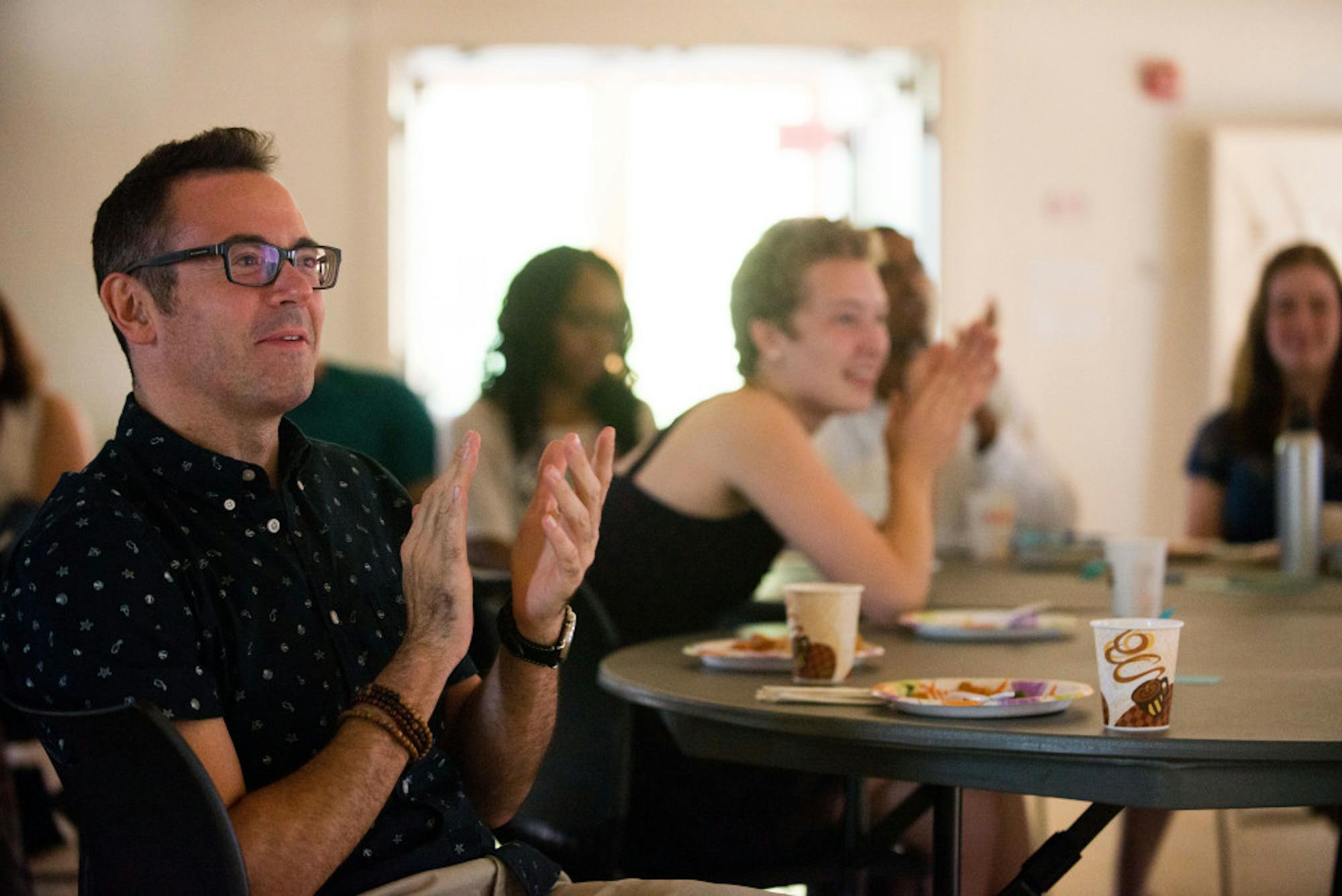While all first-year and transfer students participate in orientation upon their arrival at Tufts, many also begin their Jumbo careers as participants in one of five pre-orientation programs, each of which is organized around a specific theme or activity. According to the undergraduate orientation website, these programs provide first-years with the opportunity to get to campus early and to meet classmates with similar interests. Although many first-years do participate in pre-orientation programs, they are not required to do so, according to Joe Golia, director of the Office of Student Life. Golia said that it is not his goal that every first year participate in a pre-orientation program, but rather that every first-year should have the option to participate in one of the programs. According to Golia, 823 first-year students — over half of the incoming class — took part in pre-orientation programs this year.Golia explained thatTufts Wilderness Orientation (TWO) was the largest, with participation capped at 264 students, followed by Freshman Orientation CommUnity Service (FOCUS) with 241 participants, Fitness & Individual Development at Tufts (FIT) with 182 participants and Global Orientation (GO) with 142 participants. The Conversation, Action, Faith & Education Orientation Program (CAFE) was also reinstated this fall with 18 participants.Initially run from 2009 to 2011, CAFE was reinstated by the chaplaincy after a four-year hiatus, according to a Feb. 9 Daily article.Sophomore Nicole Morris, a peer leader for the program, said that CAFE caters to incoming first-years who prefer smaller groups, close conversation and self-exploration. She explained that despite participating in FOCUS as a first-year, she was drawn to new opportunities for growth with CAFE.“I have always been interested in interfaith work and [am] still exploring my interfaith identity, so I thought I could to learn a lot from the program with the first-years," Morris said. "I did FOCUS, and I really loved FOCUS, but I feel like [in] CAFE, because of the conversations we had, the relationships are a bit stronger.”Morris noted that because the group of students was so small, rather than breaking off into smaller groups as they would in other programs, CAFE participants and leaders all traveled together to various social justice trainings and religious sites. Afterward, they would discuss their experiences and reflect on how the different sites intersected with one another.One organization that participants visited was the Asian Task Force Against Domestic Violence (ATASK).“We talked about how religion plays a part in how someone may react to domestic violence," Morris said. "And we talked about how to be understanding of those religious views when trying to help someone in a domestic violence situation.” Although CAFE was the smallest of the pre-orientation programs by a large margin, Morris feels that the program's size largely contributed to its success.“Because the program was so small…it was a very intimate group," she said. "Everyone got really close … It felt like the students thought of us as peers, so they were actually very open with us."Morris hopes to see the CAFE continue to engage more students in the future."I hope that the community will continue to grow and that we’ll have more interfaith conversations," she said. The addition of CAFE was not the only change to pre-orientation programs this fall. GO, which used to be known as International Orientation (IO), was restructured in order to attract more incoming first-years, according to GO C-coordinator Shanice Kok.“We wanted to up our pre-orientation game," Kok, a senior, said. "We wanted to seem more open and more welcoming to American students.”According to Kok, some American students did participate in IO, but GO leaders wanted to ensure that incoming American first-years knew that the program was an option for them, too.“I think it’s really important...at an American university to really foster the relationship between both [international students] and Americans,” she said.Along with the name change, Kok also aimed to alter the structure of the program in order to optimize the experience for first-years.“For the first time, we had this thing called life stories where each group would go off with their host advisors…and they would just...talk about their life stories,” Kok said. “A lot of the events we did…made the program more memorable. I personally did [IO] when I was a [first-year], and I made a lot of good friends…but I didn’t feel that the program was memorable. I can’t even tell you what we did during the program, but I made some really good friendships.”To enhance GO, Kok said they even drew upon aspects of other pre-orientation programs.
“I wanted to take a little bit from TWO, take a little bit from FOCUS and develop the group-bonding aspect of Global Orientation," she said. "I wanted to create...events that foster group relationships.”






